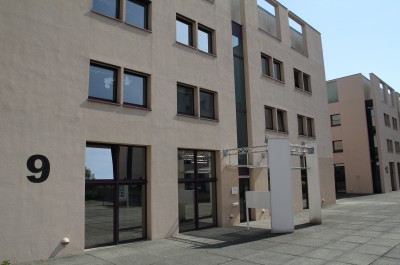| Project period |
01.08.2014 – 31.10.2017
| Project staff |
Sarah Kirmann-Kallas
Dr. Sören Kliem (Project manager)
Sabrina Lauenroth
| Funding |
Bundesministerium für Bildung und Forschung
| Cooperation partner |
Prof. Dr. Tanja Jungmann (ISER, Universität Rostock, Leitung der Implementationsforschung und der biopsychosozialen Evaluation)
Dr. Malte Sandner (Niedersächsisches Institut für Wirtschaftsforschung)
Prof. Dr. Kai von Klitzing (Universitätsklinikum Leipzig, Kinder- und Jugendpsychiatrie)
| Project description |
The Pro Kind home visiting programme was implemented from 2006 to 2012 in three German states (Bremen, Lower Saxony and Saxony) (N = 755 high-risk first-time mothers) and evaluated in a longitudinal, randomised control trial (RCT) study up to the children’s third year. Pro Kind is based on the conceptual framework of Nurse Family Partnership, a well-established, evidence-based early intervention programme for financially and socially disadvantaged first-time mothers in the US. International studies show that while the short-run effects of such home visiting programmes are relatively minor, more significant positive effects are generally seen over the medium to long term. The purpose of the present study is therefore to continue the panel with a follow-up assessment to measure the medium-term effectiveness of the Pro Kind home visiting programme with children at the age of six to seven. There are expected to be positive effects on family health, parenting skills, the children’s school readiness and their cognitive and socio-emotional development. It is also assumed that there will be monetary savings in the healthcare and social welfare system as a result of improved health and reduced state transfer payments. Overall, the study provides an opportunity to answer interdisciplinary research questions at the point of intersection between developmental psychology, health economics and criminology.
Work plan
Telephone interviews, psychological tests and face-to-face interviews will be conducted in three locations from 2014 to 2017 in order to collate data on the current situation of the families and the children’s development. In addition, administrative data will be used to obtain a detailed assessment of the health economics impacts of the Pro Kind programme.
While international studies appear to confirm the effectiveness of home visiting programmes, such findings cannot easily be applied to Germany. Overall, research into similar programmes in Germany does not appear to be very far advanced. The long-term effectiveness of such programmes needs to be appraised, however, especially given the large amounts of public funding granted to them (for example, the Federal Government provided the Frühe Hilfen early intervention network with up to €177 million in funding during the years 2012 to 2015). The findings will provide a science-based foundation for future primary prevention work and legitimation for financial resources already allocated for early intervention and in particular home visiting programmes in Germany. The study design makes it possible to analyse what conditions and components of the home visiting programme are associated with improved effectiveness in the long term. Testing research hypotheses in this way can help in improving established home visiting programmes and early intervention in general.

